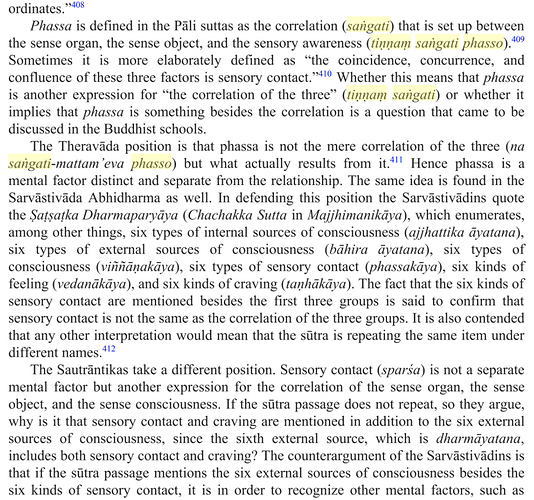First of all the word & concept of consciousness has to be treated as the word that it is.
That which you think about in terms of ‘consciousness’ is whatever it is except from the name you give it and what you think about it.
It’s important to keep in mind that consciousness per definition arises as one thing and ceases as another.
We can’t think of the eventuality of consciousness as a linear progression where it arises, persists and ceases as one and the same thing.
It is said that;
Contact is one end, origination of contact is the other end and the cessation of contact is in the middle.
Name is one end, form is the other end and consciousness is in the middle.
Past is one end, future the other end and present is in the middle. An6.61
We can demonstrate that color-vision doesn’t occur if
- there is no eye
- there is no light
- there is no consciousness
In regards to #3 the person might be unconscious or the body being simply dead.
That which we call color-vision is thought to be neither of the three, it doesn’t come to be without a meeting of the three and that which is called the meeting is not the same as what is called color vision or any of the three doing the meeting.
That which we think about in terms of color-vision is likewise whatever it is except from what we call it and what we think about it.
We can talk about an occurence of this or that instance of contact with it’s causes, effects & requisite conditions but we can’t give any one these a temporal duration in doing so, that would be like dividing by zero, it doesn’t apply.
“But, indeed, that which, monks, is called ‘mind’, or 'citta’, or ‘consciousness’, that, by night and by day, as other, indeed, arises, as other ceases. Just as, monks, a monkey in the mountain-side forests, moving itself,grasps a branch, then releasing that, grasps another, then releasing that, grasps another; even so, indeed, monks, that which is called ‘mind’, or ‘citta’, or ‘consciousness’: that, by night and by day, as other, indeed, arises, as other ceases. Sn12.61
The Buddha said to him, “Is it really true, Sāti, that you have such a harmful misconception: ‘As I understand the Buddha’s teachings, it is this very same consciousness that roams and transmigrates, not another’?”
Bhikkhus, consciousness is reckoned by the particular condition dependent upon which it arises. When consciousness arises dependent on the eye and forms, it is reckoned as eye-consciousness; when consciousness arises dependent on the ear and sounds, it is reckoned as ear-consciousness; when consciousness arises dependent on the nose and odours, it is reckoned as nose-consciousness; when consciousness arises dependent on the tongue and flavours, it is reckoned as tongue-consciousness; when consciousness arises dependent on the body and tangibles, it is reckoned as body-consciousness; when consciousness arises dependent on the mind and mind-objects, it is reckoned as mind-consciousness. Just as fire is reckoned by the particular condition dependent on which it burns—when fire burns dependent on logs, it is reckoned as a log fire; when fire burns dependent on faggots, it is reckoned as a faggot fire; when fire burns dependent on grass, it is reckoned as a grass fire; when fire burns dependent on cowdung, it is reckoned as a cowdung fire; when fire burns dependent on chaff, it is reckoned as a chaff fire; when fire burns dependent on rubbish, it is reckoned as a rubbish fire—so too, consciousness is reckoned by the particular condition dependent on which it arises. When consciousness arises dependent on the eye and forms, it is reckoned as eye-consciousness…when consciousness arises dependent on the mind and mind-objects, it is reckoned as mind-consciousness.
mn38






